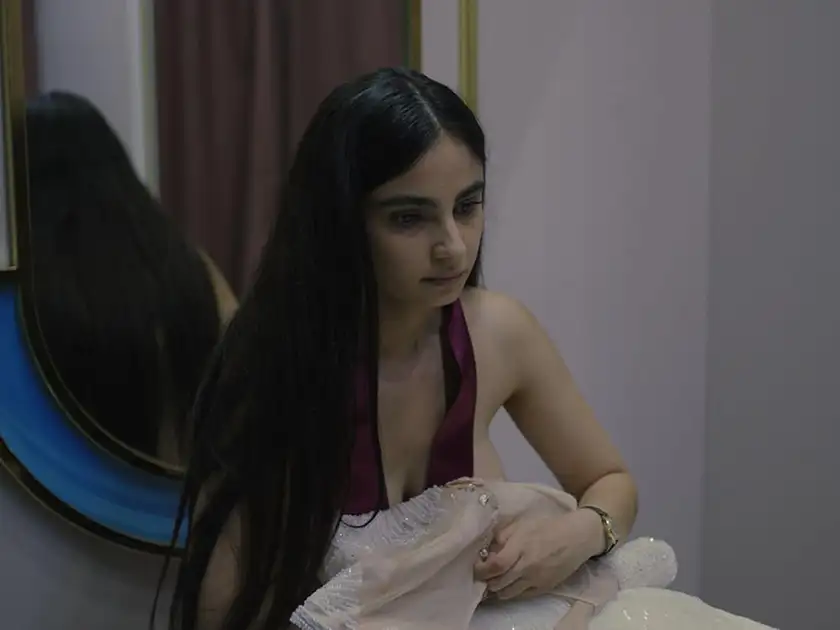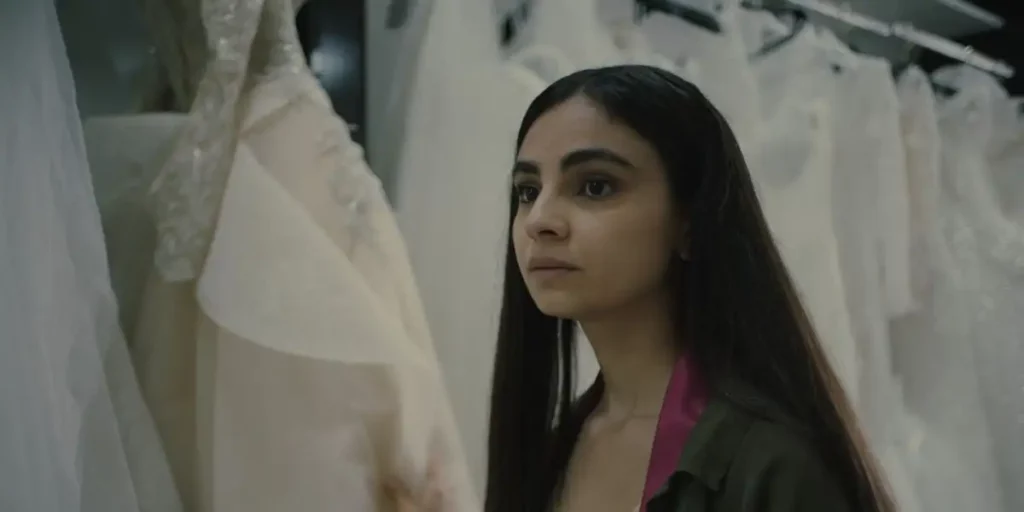Milena Aboyan’s Elaha is a drama that poignantly and powerfully explores a young woman’s self-discovery under the weight of cultural tradition.
“Virginity is not a medical term, but a socio-cultural construct”, proclaims a doctor in writer/director Milena Aboyan’s Elaha. And while many audiences may wholeheartedly agree, it is a statement often disregarded within the Kurdish community at the heart of Aboyan’s poignant character drama. Virginity equals purity, something a woman should be in possession of upon her wedding night. (And may even, at the mother-in-law’s request, be checked for by a medical professional.)
Elaha is a powerful film about agency, exploring the difficulty in finding balance between meeting and defying expectations, and of understanding what being a ‘virgin’ means. It’s a feminist film that doesn’t seek to vilify the traditions and ideas inherently at odds with its modern sensibilities, but rather explore the impact they have on the emotional wellbeing of a young woman being stifled under them.
Elaha (Bayan Layla) is mere weeks away from her wedding to Nasim (Armin Wahedi), and there is a good chance his parents are going to ask, as is culturally traditional in their Kurdish community, for proof of her ‘virginity’. The only problem is that Elaha has had sex before, and the surgery to reconstruct a hymen is much more expensive than she can afford. Add in the risk of disappointing her own mother (Derya Durmaz) and father (Nazim Kirik) and her increasing trepidation of life as a wife, and Elaha finds herself desperately searching for the right choice.
At three separate points in the film, in moments when she is feeling especially vulnerable, Elaha looks directly to camera. The first, in the opening shot, is a little jarring, but acts as an invitation into Elaha’s world, into her thoughts and feelings. Midway through, it is equal parts defiant and desperate, as Elaha makes a somewhat ill advised decision. And then finally, as the film draws to a close, it’s acceptance – good or bad – and a turning point in the future Elaha is to make for herself. It’s an incredibly powerful motif. Used sparingly but effectively, it packs the full emotional punch of Elaha’s story in each glance.

Elaha sits in the grey area between modernity and tradition, a place where countless women around the world find themselves. It’s a place where the love for family and culture clashes with the idea of self-identity, feminism, and of bodily autonomy. Aboyan’s script is pointed but respectful, unconcerned with offering a rose-tinted view of Elaha’s situation. The film gives her agency, but it is agency that also includes nurturing a desire to conform out of love for her family. It can be a frustrating watch for those unaccustomed to such deep-rooted cultural traditions, especially when so much emphasis is placed on a miniscule body part that has no specific physiological function, never mind any definitive relation to ‘virginity’. But it also very effectively showcases an understanding of nuance.
For it’s in the nuance of the idea of ‘virginity’ that the film really lingers. Elaha is desperate to reproduce something often referred to as ‘broken’ as soon as one has sex. But, metaphorically, she is seeking to repair herself under the assumptions and expectations placed upon her. She is at odds with two of the most important parts of herself: her love for her family, one that is steeped in culture and tradition, and a desire to be more than what that culture and tradition would have her be. And Aboyan isn’t looking to necessarily shame or celebrate either side of Elaha’s situation.
Instead, the film is much more focussed on poignantly exploring how stifling expectations can be and how terrifying honesty really is. It is measured and thoughtful, never seeking to oversimplify situations or paint them as black-or-white. For example, there is a version of this film wherein Elaha’s mother is simply the villainous figure, lashing out and judging her daughter for decisions she sees as uncouth. But Aboyan understands that pride can be incredibly stifling too, and so instead she becomes much more complex than that. And Elaha’s father, initially dismissive and unwilling to intervene, is also struggling to fulfil his ‘role’ in the family too.
It’s a film that gives its supporting cast depth and lets the drama have the breathing room it needs to really deliver its emotional impact, but knows to keep its focus on Layla’s Elaha. Her performance is absolutely remarkable. Restrained but packed full of feeling, her emotions – anxiety, fear, resilience and anger – all shift across her face in a way that, while subtle, is incredibly effective. Her performance carries the emotional resonance needed for Elaha’s dilemma to be as powerful as it is, anchoring a film that’s inherently dependent on the journey of one young woman that one thousands of others can relate to.
Elaha is a poignantly powerful drama about the complexities of culture versus choice. It’s a film that isn’t necessarily looking to provide clear answers or defiant messages about antiquated – and arguably incorrect – ideas of virginity and sexuality, but rather explore how they affect a terrified young woman’s self-discovery. It’s upsetting, frustrating, empowering and heartbreaking to watch Elaha’s journey, and equally so for her to embark upon it.
Elaha had its UK premiere at the 2024 Glasgow Film Festival and will open in cinemas across the UK & Ireland on April 26, 2024.

